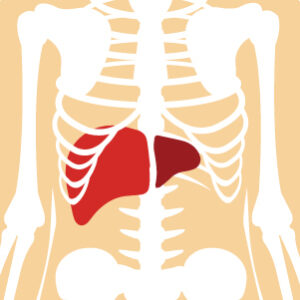
Hepatitis C Update for Clinicians—Important Information on Prevalence and Treatment
Hepatitis C (HCV) continues to be a problem in Spokane County and around the country. Nationally, HCV is a growing problem with ties to the opioid epidemic. Spokane Regional Health District (SRHD) is currently offering case management for patients who may struggle to complete HCV treatment for many reasons, including active addiction. Case management consists of meeting with patients to provide support before and during HCV treatment, with periodic follow-ups after treatment is completed, coordination of appointments, and contact with providers as necessary. It is important to provide treatment to any patient identified as HCV positive who agrees to completing the course of treatment. SRHD understands these patients can require additional support to succeed in treatment, which is why case management is an excellent resource. If you feel that one of your patients would benefit from case management or have any HCV questions, please contact Mackenzie Driscoll at 509.324.3634.
The Centers for Disease Control and Prevention (CDC) reports that as of 2018, the age group most affected by acute HCV are 20- to 29-year-olds. Comparatively, the opioid crisis most impacts 20- to 39-year-olds. Injection drug use was associated with 72% of acute HCV cases in 2018.
A total of 740 HCV cases were reported to SRHD during 2019, with 18 of those being acute. 2020 saw a decrease in cases, with 473 reported, 15 of which were acute. This decrease was likely due to the COVID-19 pandemic, which caused a decline in office visits and therefore in HCV testing.
HCV is a notifiable condition. All acute cases identified in a healthcare setting must be reported to SRHD within three business days. Chronic HCV cases must be reported to SRHD within one month. Please see pages 6-9 of the Washington State Department of Health Hepatitis C Guidelines for case definitions. Fax reports to SRHD at 509.324.3623.
Any individual with the following risk factors should be tested for HCV:
- People born 1945-1965 (Baby Boomers)
- People who have HIV
- People who have used injection drugs (even if only once and/or many years ago)
- People who have inhaled drugs through a straw
- People who have received long-term hemodialysis
- People who have received blood clotting factor concentrates before 1987
- People who have received a blood transfusion or products prior to July 1992
- People who have had a needle stick, stick with another sharp, or mucosal blood exposure at work
- Children born to mothers with HCV
Healthcare providers should consider ordering an HCV antibody test with reflex to PCR viral load, if available. This allows for RNA testing from the same blood sample if the antibody test is positive, reducing the number of visits the patient must make to the healthcare provider and increasing the likelihood that the provider will get a viral load result. This is especially important in certain settings, such as urgent care, to reduce confusion, additional costs for patient and provider, and transportation barriers for patients who may not follow through with referral testing. Completing all necessary blood work at one appointment is advantageous for both patient and provider. In addition to HCV testing, please order a CMP for a more complete picture of the patient’s health, especially liver function. CMPs can be faxed to SRHD with HCV reports.

Acute HCV Case Rate 2014-18

Chronic HCV Case Rate 2014-18
References
Hepatitis C Reporting and Surveillance Guidelines (Washington State Department of Health, Revised March 2020), https://www.doh.wa.gov/Portals....
“Viral Hepatitis Surveillance Report 2018 — Hepatitis C,” Centers for Disease Control and Prevention, Reviewed August 28, 2020, https://www.cdc.gov/hepatitis/....
“Hepatitis C Resources for Health Care Providers,” Centers for Disease Control and Prevention, Reviewed June 14, 2021, https://www.cdc.gov/knowmorehepatitis/hcp/HepCProfResources-hcp.htm.
